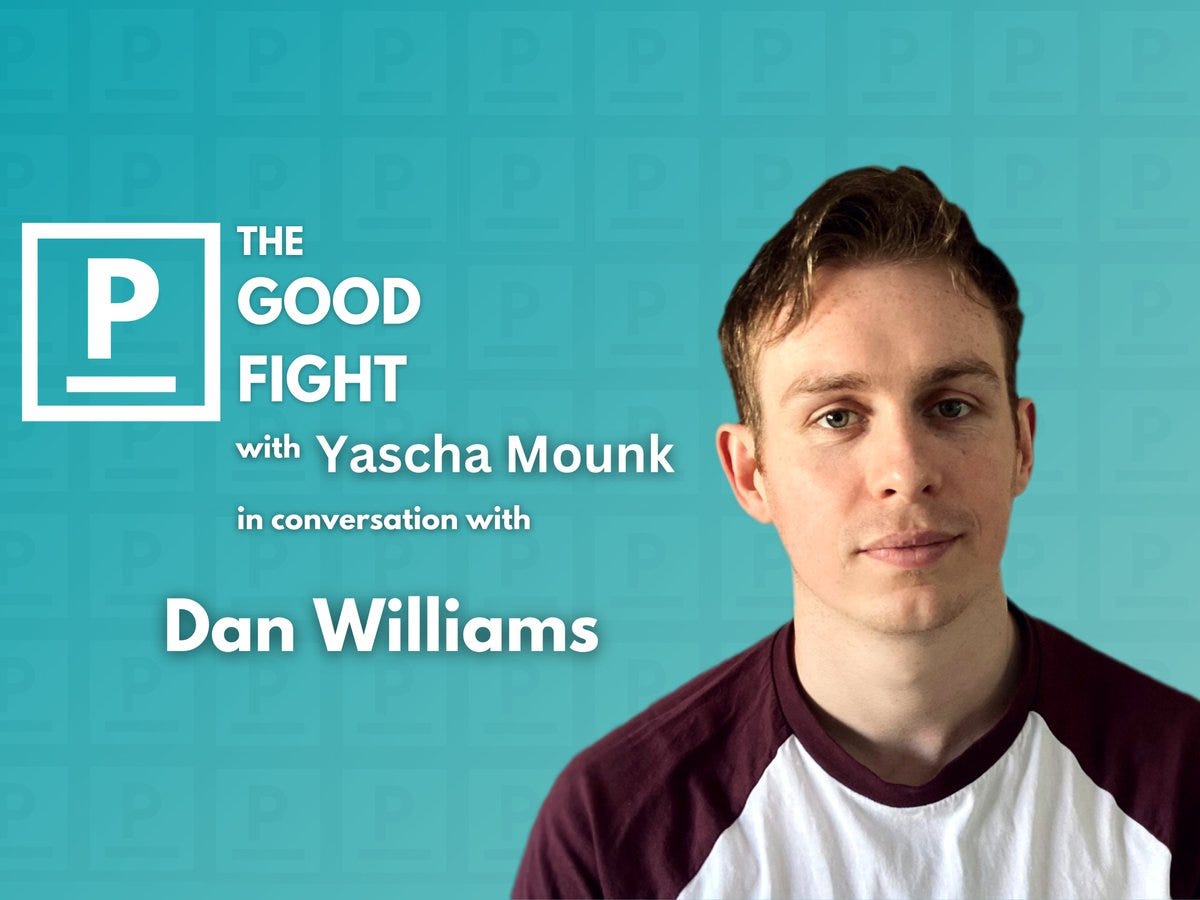Thinking Beyond the Misinformation Wars
An in-depth conversation with Yascha Mounk about the problems with 'misinformation' discourse, why people distrust institutions, and much more.
I recently had a long conversation (listen to the beginning 45 minutes here) with the great Yascha Mounk (founder and editor-in-chief of ‘Persuasion’) about a wide range of topics, including:
The Misinformation Problem
Why the term "misinformation" has become too broad and often just means "viewpoints I disagree with"
How the 2016 Brexit vote and Trump election sparked today's obsession with fake news, misinformation, disinformation, “post-truth”, etc.
Why most people who share obviously false stories are already political extremists and conspiracy theorists, not persuadable voters
Elite Hypocrisy
How mainstream institutions and experts spread their own forms of misleading information
Examples of "highbrow climate misinformation" that exaggerates climate dangers in misleading ways
Why calling out elite misinformation often gets you more punishment than spreading it (and why this is bad!)
The Danger of Intellectual Laziness
The "I'm for the current thing" vs "I'm against the current thing" mentality
Why automatically believing the opposite of what experts say is much worse than blindly trusting them
How to navigate a world where you need expertise but can't trust institutions completely
The "Everyone is Biased" Bias Trap
Why recognising that everyone has biases is important but can go too far
How this insight can lead to dangerous relativism that treats all viewpoints as equally valid
The difference between ordinary human bias and the kind of deliberate, brazen lying that someone like Elon Musk engages in
Why Our Institutions Are Failing
How groupthink in journalism and academia undermines their credibility
Why ideological diversity within institutions is crucial for finding truth
The importance of norms that reward dissent rather than conformity
The Problems with "Standpoint Theory"
Why the idea that oppressed groups have superior knowledge is often philosophically confused
How the most ambitious versions of standpoint theory often rest on circular reasoning
Why deferring to "the oppressed" often just means picking spokespeople you already agree with
Cultural Relativism vs Universal Truth
How recognising cultural differences can slide into refusing to make any moral judgments
Why some values (like women's equality) shouldn't be dismissed as "just Western bias"
The Role of Philosophy in Public Debate
How philosophical training can help clarify messy political discussions
Why more academic philosophers should engage with public discourse despite professional risks
The conversation and transcript can be found here:
If you listen to the conversation, please leave a comment telling me what you disagree with!




Why more academic philosophers should engage with public discourse despite professional risks. I am skeptical of this claim, substack is working well for you but I doubt there is room for everyone sadly. Philosophy is a niche topic already. I do think academics I general should engage with the public tho, so bad actors and populists have a harder time spreading seeds of distrust
I looked over part of the transcript. It's extensive and thoughtful as always. It's the sort of material I wish I could engage with at length, but I'm not going to start a Substack blog of my own, not worth it on many levels.
Just one highlight, regarding "what you disagree with" - I'd say there's a mistaken path right around here: "They don't trust public health officials. They don't trust mainstream media, and so on. So the main thing is to try to regain trust or to increase trust in those institutions."
It is my empirical belief that it's utterly, completely, impossible, to do anything like this without directly combating somehow the right-wing lie machine. Otherwise, it's like taking the saying "If you give me six lines written by the hand of the most honest of men, I will find something in them which will hang him.", and proclaiming the solution is to always be so careful that even the most dishonest and uncharitable won't be able to find anything in it. And jumping all over any attacked phrasing to "help" explain why there's a desire to hang the writer.
This stuff "And if it's perceived that these institutions are politicized, ..." will trap you in an endless loop of blaming-the-victim, morally repugnant yet completely ineffective. It's a "centrist/moderate" pundit myth that all that is necessary is to go just up to the approved line of the "centrist/moderate" pundit. Because that's their peer-group, not the fetid fever swamp of right-wing lunacy. You will end up sanewashing insanity in a futile quest for "credibility", which will never come. It effectively turns into fellow-traveling with the anti-intellectualism campaigns of the worst, most malicious, liars against the advances of civilization.
I rant. I know how it sounds. It's probably a futile expression of frustration. But these are bad times. It's not as bad as WWII Germany, but that's a very low bar.